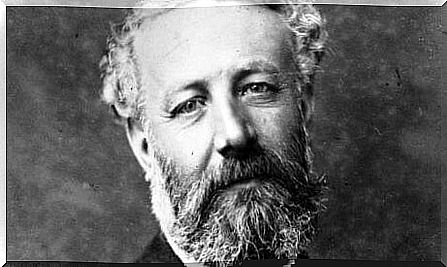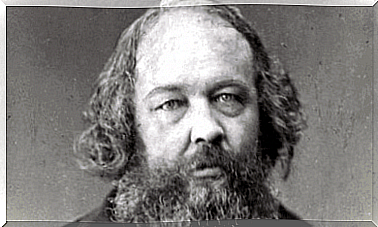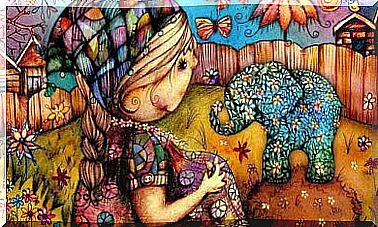Isaac Asimov, The Power Of Psychohistory
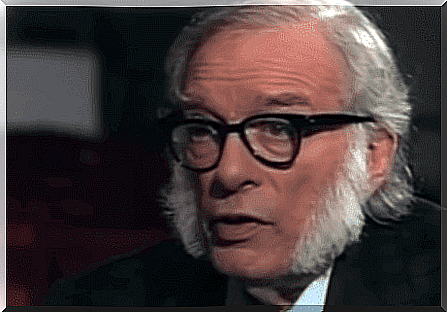
Isaac Asimov is considered one of the fathers of contemporary science fiction. Author of over 500 books, his work is invaluable. A strong supporter of applied science, he firmly believed in the power of science fiction as a precursor to real science. It is undoubtedly better known thanks to the concept of psychohistory.
He invented this scientific discipline. Psychohistory is the combination of mass psychology and high level mathematics for the purpose of predicting the behavior of a society.
In this article, we will take a closer look at Asimov’s work and his great contributions to literature and science. How did psychohistory go from a fictitious discipline to a possible branch of social psychology?

Isaac Asimov, the life of the genius
Isaac Asimov was born in Russia in 1920. He soon moved to Brooklyn with his parents. In New York, Asimov demonstrates to be a youngster with incredible talent. Indeed, at 5 years old, Isaac had already learned to read in a self-taught way.
Soon after learning to read and write in English, Isaac also learned Yiddish, the language of Ashkenazi Jews. At 15, Isaac graduated from high school and entered Columbia University. It was only 19 years old that he graduated from this university.
Like many young people of his time, after graduating from university, Asimov joined the ranks of the army. It was at this time – more precisely in 1939, that his career as a science fiction author began to develop.
During World War II, Asimov worked at , in the USA. There he met other people who, like him, would eventually become great science fiction writers, such as Robert Heinlein and L. Sprague de Camp.
After the war, Isaac continued his academic career. He returned to Columbia University for a doctorate in biochemistry in 1948. After graduating with a doctorate in science, Isaac Asimov joined the faculty at Boston University.
For ten years, he published multiple columns in several specialized science fiction and fantasy journals. These columns gave birth to the stories that make up his two major series: Me, Robot and Foundation. The stories Asimov told in his columns have retained a certain connection. Thus, we have compiled them to form the titles we know today.
Foundation and psychohistory
Inspired by the fall of the Roman Empire, the Foundation series begins during the last days of the Galactic Empire. Asimov presents us with a reality which, although it takes place in the very distant future, turns out to be terribly plausible.
In that future, the fall of the Empire would imply an era of darkness – in a clear allusion to the Middle Ages, which would last 30,000 years. Hari Seldon, the inventor of psychohistory, determined that this period could be reduced to just 1,000 years if the most brilliant minds of the Empire were brought together on one planet. The designated planet would be Terminus . The wise will be responsible for storing all the knowledge acquired over the last few years.
Admittedly, Asimov’s narration is active and immersive. However, it is not his literary ability that interests us most today. The science of psychohistory is perhaps one of the greatest predictions that have emerged since science fiction.
Psychohistory is in itself the harmonious union between mass psychology, anthropology and high level mathematics. A competent psychohistorian might be successful in predicting the pattern of behavior of an entire society in the distant future.
Fortunately for mankind, science regularly succeeds in bringing to life inventions that had been described in science fiction literature. We can cite for example the work of Jules Verne. Psychohistory seemed like an attractive concept, but implausible in the real world.
Nevertheless, the new century has allowed an infinite number of technological advances. The use of the Internet and all the platforms on it results in an enormous production of information. But what if psychohistory used this data to become more than a science fiction illusion?
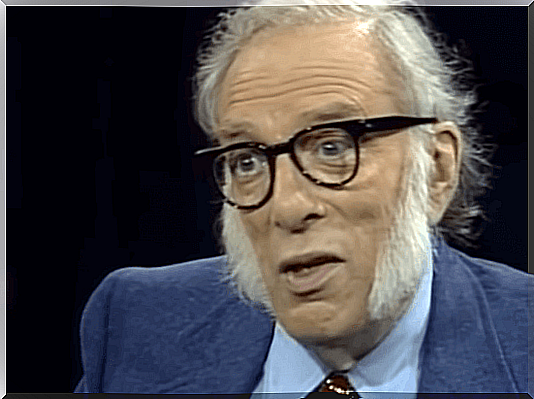
Psychohistory and Reality: Big Data Analysis
The data we are talking about can come from a large number of sources and measure any online phenomenon . The time that a user invests on a web page, the most attractive content, the most popular colors, the lifespan of a product, the dynamics of a trend, etc. Ultimately, the data flow is endless.
Currently, this data flow is known as big data. In other words, it’s a very varied set of data. These data are stored at a very high speed and are arriving in increasing numbers.
The big data is all the data generated by the humanity of electronic and can not be treated by traditional databases.
Many scientists, mathematicians and engineers are working hard to find the right way to handle all this data. Many recognize that despite complicated processing, the fruits are enormous.
Nonetheless, Asimov’s psychohistory is clear on one point. Not everyone can exercise it and discover the behavior patterns of the future. Like psychohistorians, finding true value among all the unnecessary data can be nearly impossible work.
The process of discovery and psychohistoric computation requires – for Asimov – a group of professionals. The latter must specialize in data analysis, social theory and history, business experience. Only a good group will be able to ask the right questions, predict behaviors, and recognize specific behaviors.
Isaac Asimov was a pioneer, one of those figures in history who managed to broaden our vision of the world, to project it into a future. Through a few works of fiction, he paved the way for something much more tangible, more real and with practical applications.
